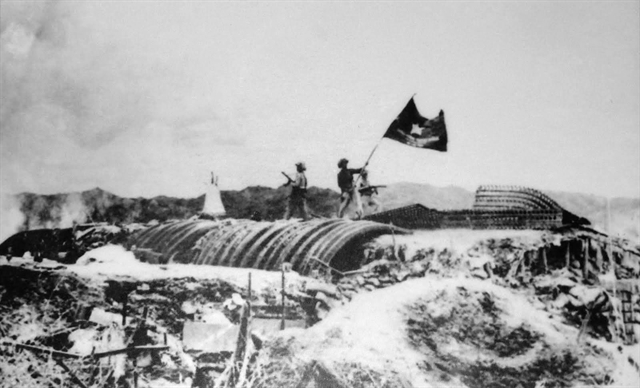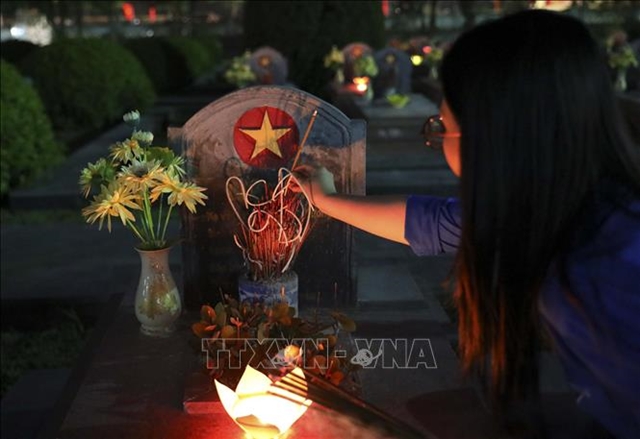 Society
Society

 |
| Candles were lit at Martyrs’ Cemetery A1 in Dien Bien province on May 4 evening to pay tribute to fallen soldiers on the occasion of the 70th anniversary of Dien Bien Phu Victory (May 7, 1954 - 2024). - VNA/VNS Photo |
ĐIỆN BIÊN – The Hồ Chí Minh Communist Youth Union (HCYU) in the northern province of Dien Bien on May 4 evening offered incense and lit candles at Martyrs’ Cemetery A1 in Điện Biên Phủ city in memory of fallen soldiers on the occasion of the 70th anniversary of Điện Biên Phủ Victory (May 7, 1954-2025).
At the ceremony, local youths and representatives from the HCYU Central Committee and the administrations of Điện Biên and the Mekong Delta province of Tiền Giang laid a wreath at the monument and offered incense at all tombs in the cemetery.
The activity showed the profound gratitude of Vietnamese people in general and Điện Biên youths in particular for the soldiers who laid down their lives for national independence and freedom.
Martyrs’ Cemetery A1, built in 1958, is the resting place of 664 martyrs, but only four of them were identified - Tô Vĩnh Diện, Bế Văn Đàn, Phan Đình Giót, and Tran Can.
The battle in Dien Bien Phu occurred between March and May 1954 under the command of General Võ Nguyên Giáp. The victory led to the signing of the 1954 Geneva Accords in which France agreed to withdraw its forces from its colonies in Indochina.
The Dien Bien Phu Victory on May 7, 1954, is considered a glorious “golden milestone” in the Vietnamese nation’s history of fighting foreign aggressors for national independence. It marked the complete collapse of old colonialism all over the world, paving the way for the movement of rising up to struggle for national liberation in colonial countries in Asia, Africa, and Latin America. - VNA/VNS




